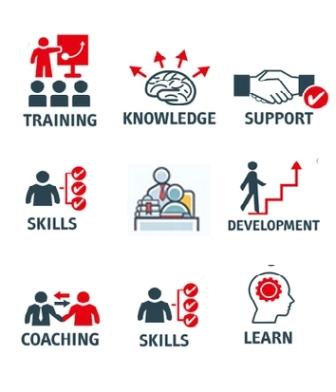Strategic Plan

Vision
Mission
To leverage data science to decrease the impact of trauma, surgical disease, and disparities on the population of Cameroon and sub- Saharan African (SSA) countries by promoting collaborative research, networking, and capacity building.
Cores
Leave us a Note
Join our Newsletter to receive regular updates on our project activities.
Our Goals
Networking
To create and enhance connections between scientists, institutions, and stakeholders within its Cores, Projects, and the Harnessing Data Science for Health Discovery and Innovation in Africa (DS-I Africa) Consortium.
Capacity Building
To mentor and train researchers, policy makers, providers, community leaders, and staff members in advanced analytic methods and public health approaches to address critical issues in injury and equity.
Our Networking & Partnerships
These novel partnerships will create new ways of looking at injury and surgical disease, speed uptake of findings on high impact, evidence-based interventions, and promote innovative, multidisciplinary science on injury, equity, and surgical disease
Our goals will be implemented across Three Cores and Two Research Projects:

Administrative Core
This group leads the D-SINE Africa interdisciplinary team, convenes meetings, and coordinates science, networking and capacity building agendas. It leads strategic planning initiatives, manages existing and new partnerships, and manages administrative, financial and dissemination functions.
Read More...

Data Management & Analysis Core - DMAC
The Data Management and Analysis Core guides innovation and impact in data quality, statistical methods, and implementation science. It manages the secure housing of data, oversees quality, and supports effective data management and analysis across D-SINE Africa’s Cores, Projects, and partners.
Read More...

Data Management & Analysis Core - DMAC
- Phone:+1 (859) 254-6589
- Email:info@example.com

Capacity Development Core - CBC
The Capacity Building Core will support development of a diverse cadre of SSA researchers, mentor D-SINE Africa Research Fellows, implement and support the Seed Grant Program, and leverage D-SINE partners’ resources to strengthen administrative capacity towards research training and administration.
Read More...

Capacity Development Core - CBC
- Phone:+1 (859) 254-6589
- Email:info@example.com
Research Projects
Project 1 : Health Equity Surveillance
Project 2 : Trauma Follow-Up Prediction
These projects will use data science to address urgent priorities at the intersection of surgery, injury, and equity over the next 5 years.
D-SINE Africa efforts will drive innovation and impact in data science, injury, and equity research to improve access to surgical disease prevention and care, including those whose socioeconomic status conspires to increase their vulnerability to injury and surgical conditions while reducing consistent surgical care access.
Title: A novel cluster-based algorithm to estimate socio-economic status for health equity surveillance in sub-Saharan Africa.
Our overall objective is to apply a novel cluster-based algorithm to estimate socio-economic status for health equity surveillance in sub-Saharan Africa.
We have developed a k-medoids clustering-based algorithm that generates simple, population-specific models of economic status using only four or five of the 29 to 36 Demographic and Health Survey (DHS) assets variables in Cameroon and Ghana. READ MORE…
Title: Using data-adaptive methods to optimize follow up of injured patients after hospital discharge in Cameroon.
Our overall objective is to improve health in SSA by identifying and retaining injury patients who would benefit from further care after initial treatment.
In SSA countries like Cameroon, injured people face multiple obstacles to trauma care, including potentially lifesaving follow-up care after hospital discharge. Our community-based survey of 8,065 patients in Southwest Cameroon found that 34.6% of injured respondents did not seek immediate formal care after injury, and another 9.9% … READ MORE
